Films with theme "Films about Latin American military dictatorships", sorted by name
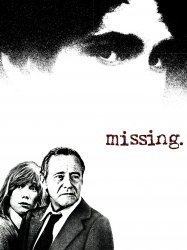
Missing (1982)
, 1h57Directed by Costa-Gavras
Origin USA
Genres Drama, Thriller, Documentary, Historical
Themes Seafaring films, Politique, Transport films, Political films, Films about Latin American military dictatorships
Actors Jack Lemmon, Sissy Spacek, Melanie Mayron, John Shea, Janice Rule, Charles Cioffi
The film opens with Costa-Gavras' statement that the events of the film are true.

Machuca (2004)
, 2hDirected by Andrés Wood
Origin Chili
Genres Drama
Themes L'adolescence, Films about children, Seafaring films, Politique, Films about sexuality, Transport films, La sexualité des mineurs, Political films, Films about Latin American military dictatorships
Actors Manuela Martelli, Ariel Mateluna, Matías Quer, Aline Küppenheim, Federico Luppi, Francisco Reyes Morandé
The film is from the perspective of Gonzalo Infante, a privileged Chilean boy, during a time period in which the lower classes are politically mobilized, demanding more rights and forcing fundamental change. At the same time the upper middle class, including Gonzalo's own family, grow fearful of the growing socialist movement and plot against the country's elected president, Salvador Allende. Gonzalo's father, while sympathetic to the poor and not part of the right-wing movement, wants to leave the country to Italy, where he frequently travels for work, to avoid the Socialist policies. Sra. Infante is having an affair with a wealthy older gentleman, who gives Gonzalo gifts to keep him quiet. Gonzalo is sometimes bullied by his sister's boyfriend, who is a violent anti-Allende right-winger who uses nun-chucks to intimidate people. The family often buys products off of the black market, due to rationing and shortages.
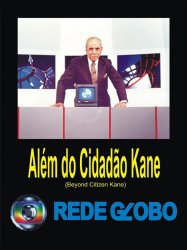
Beyond Citizen Kane (1993)
, 1h45Origin United-kingdom
Genres Documentary
Themes Seafaring films, Transport films, Documentary films about business, Documentary films about law, Documentary films about politics, Political films, Films about Latin American military dictatorships
The documentary tracks Globo's involvement with and support of the military dictatorship; its illegal partnership of the 1960s with the American group Time Warner (at the time Time-Life); Marinho's political manoeuvrings (which included airing on Jornal Nacional, the network's prime time news program, highlights of a 1989 presidential debate edited in a way as to favour Fernando Collor de Mello); and a controversial deal involving shares of NEC Corporation and government contracts. It features interviews with 21 people, including noted Brazilian politicians and cultural figures, such as politicians Leonel Brizola and Antonio Carlos Magalhães, singer-songwriter Chico Buarque, former Justice Minister Armando Falcão, politician Luiz Inácio Lula da Silva, who later was elected as president; and former employees Walter Clark and Armando Nogueira.

No (2012)
, 1h57Directed by Pablo Larraín
Origin Mexique
Genres Drama, Historical
Themes Seafaring films, Politique, Théâtre, Transport films, Political films, Films about Latin American military dictatorships, Films based on plays
Actors Gael García Bernal, Antonia Zegers, Néstor Cantillana, Luis Gnecco, Richard Dreyfuss, Alfredo Castro
After fifteen years of military dictatorship but facing considerable international pressure, the public of Chile is asked by the government to vote in the national plebiscite of 1988 on whether General Augusto Pinochet should stay in power for another eight years or whether there should be an open democratic presidential election the next year.
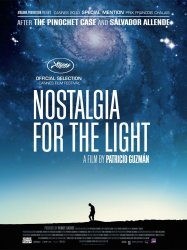
Nostalgia for the Light (2010)
, 1h30Directed by Patricio Guzmán
Origin Chili
Genres Drama, Documentary
Themes Seafaring films, Politique, Transport films, Documentary films about law, Documentary films about politics, Political films, Films about Latin American military dictatorships
Actors Patricio Guzmán, Víctor González
Nostalgia for the Light opens with a view of a telescope and images of our moon. The narrator, Patricio Guzmán, describes how he came to love astronomy and begins to remember his childhood where “only the present moment existed.” Soon, Chile became the center of the world as astronomers and scientists flocked to Chile to observe the universe through the thin and clear skies. We next see Guzmán walking in the Atacama Desert, a place with absolutely no moisture, so much so that it resembles the surface of Mars. This desert, and its abundance of history, becomes the focus of the documentary. Because of how dry it is, the desert hosts the untouched remains of fish, mollusks, Indian carvings, and even mummified humans.
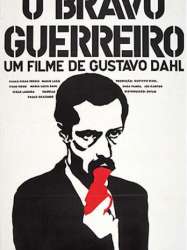
The Brave Warrior (1968)
, 1h20Origin Bresil
Genres Drama
Themes Seafaring films, Transport films, Political films, Films about Latin American military dictatorships
Actors Milton Gonçalves, Maria Lúcia Dahl, Carlos Vereza, Paulo Gracindo, Hugo Carvana, Paulo Porto

The Day That Lasted 21 Years (2012)
, 1h17Origin Bresil
Genres Documentary
Themes Seafaring films, Transport films, Documentary films about law, Documentary films about historical events, Documentary films about politics, Political films, Films about Latin American military dictatorships
The 1964 Brazilian coup d'état (Portuguese: Golpe de estado no Brasil em 1964 or, more colloquially, Golpe de 64) on March 31, 1964, culminated in the overthrow of Brazilian elected President João Goulart by the Armed Forces. On April 1, 1964, the United States expressed its support to the new military regime.
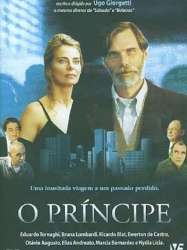
O Príncipe (2002)
, 1h42Origin Bresil
Genres Drama
Themes Seafaring films, Transport films, Political films, Films about Latin American military dictatorships
Actors Bruna Lombardi, Otávio Augusto, Felipe Folgosi
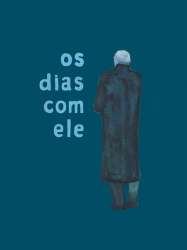
The Days with Him (2014)
, 1h47Origin Bresil
Genres Biography, Documentary
Themes Seafaring films, Transport films, Documentary films about law, Documentary films about politics, Political films, Films about Latin American military dictatorships

Moon Over Parador (1988)
, 1h43Directed by Paul Mazursky
Origin USA
Genres Drama, Comedy, Romantic comedy, Action, Romance
Themes Seafaring films, Monde imaginaire, Politique, Films about television, Transport films, Political films, Films about Latin American military dictatorships
Actors Richard Dreyfuss, Raúl Juliá, Sônia Braga, Jonathan Winters, Fernando Rey, Regina Casé
The film follows the exploits of film actor Jack Noah (Dreyfuss), who is filming in the small, fictional South American country of Parador when Paradorian President Alfonse Simms suddenly dies of a heart attack. Not wanting to lose his position in power, the president's right-hand man, Roberto Strausmann (Juliá) forces Jack to take the 'role of a lifetime' - that of the dead president, as the two men look so much alike. Jack accepts, eventually winning over the people and even the dead president's mistress, Madonna (Braga). However, when paradise proves to be too boring, Jack needs to find a way to get out while keeping Roberto out of the loop.

Go Ahead, Brazil! (1982)
, 1h45Directed by Roberto Farias
Origin Bresil
Genres Drama, Crime
Themes Seafaring films, Transport films, Political films, Films about Latin American military dictatorships
Actors Antônio Fagundes, Reginaldo Faria, Natália do Vale, Paulo Porto
The film is set on mid 1970, when the military regime's "economic miracle" and the victory of the Brazilian national football team on the FIFA World Cup serves as a distraction for the persecution of opposition leaders by the political police of the dictatorship.
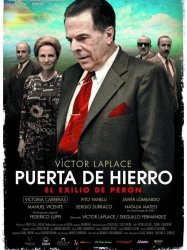 , 1h48
, 1h48Themes Seafaring films, Transport films, Political films, Films about Latin American military dictatorships
Actors Federico Luppi
Close to his final return to Argentina, Perón begins to record in tapes his memoirs of the exile. He begins with the bombing of Plaza de Mayo and the Revolución Libertadora military coup against him, which caused his departure from the country. He met the Argentine dancer María Estela Martínez in Panamá, who stayed with him. He finally settled in Spain, and became a friend of his doctor and a tailor named Sofía who did not recognize him. Despite of his distance of the country, he stayed informed of all the ongoing political developments, and several Argentine political figures visited him.
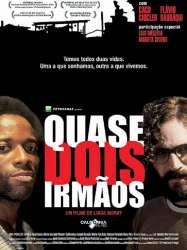
Almost Brothers (2004)
, 1h42Origin Bresil
Genres Drama
Themes Seafaring films, Transport films, Political films, Films about Latin American military dictatorships
Actors Werner Schünemann, Caco Ciocler, Maria Flor, Babu Santana
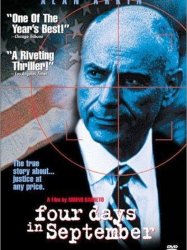
Four Days in September (1997)
, 1h50Directed by Bruno Barreto
Origin Bresil
Genres Drama, Thriller, Action, Historical
Themes Seafaring films, Politique, Transport films, Political films, Films about Latin American military dictatorships
Actors Fernanda Torres, Luiz Fernando Guimarães, Pedro Cardoso, Cláudia Abreu, Alan Arkin, Matheus Nachtergaele
The film is a fictional version of the dramatic events of the 1969 abduction of the American ambassador Charles Burke Elbrick (played by Alan Arkin) in 1969. Elbrick was taken in Rio de Janeiro by the Revolutionary Movement 8th October (MR-8) with help of Ação Libertadora Nacional (ALN). Gabeira (played by Pedro Cardoso and named Paulo in the film) as a student joins the radical movement after the military takeover of the Brazilian government. He and his comrades, led by Andréia, gradually decided to kidnap the ambassador as a protest, and are shown mostly planning and executing the kidnapping. Paulo is portrayed as "the most intelligent and uncertain of the kidnappers.
 , 1h15
, 1h15Directed by Luiz Bolognesi
Origin Bresil
Genres Drama, Science fiction, Fantasy, Historical, Animation, Romance
Themes Seafaring films, Politique, Transport films, Films set in the future, Political films, Films about Latin American military dictatorships
Actors Selton Mello, Camila Pitanga, Rodrigo Santoro, Bemvindo Sequeira, Laís Bodanzky, Paulo Goulart
The film is set in four dates in the history of Brazil: 1500, when the country was discovered by the Portuguese explorers, 1800, in events during slavery; 1970, during the high point of the authoritarian military dictatorship, and 2096, when there will be a war over water. The film narrates the love between Janaina and a native warrior who, when dying, takes the form of a bird. For six centuries, the story of the couple survives through these four stages in the history of Brazil.
 Connection
Connection